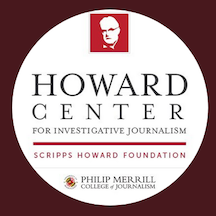 A nationwide investigation of state lotteries by the Howard Center for Investigative Journalism at the University of Maryland found that stores that sell tickets are disproportionately clustered in lower-income communities in nearly every state. The investigation’s analysis of cellphone location data shows that the people who patronize those lottery retailers come from the same kinds of communities.
A nationwide investigation of state lotteries by the Howard Center for Investigative Journalism at the University of Maryland found that stores that sell tickets are disproportionately clustered in lower-income communities in nearly every state. The investigation’s analysis of cellphone location data shows that the people who patronize those lottery retailers come from the same kinds of communities.
Once rare, lotteries now operate in all but five U.S. states. Driven by more than a half-billion dollars in annual ad spending, increasingly sophisticated sales strategies, and political pressure to increase revenue, lottery ticket sales have grown from $47 billion to $82 billion since 2005. In 10 states, lotteries generate more revenue than corporate income taxes.
A report to the National Gambling Impact Study Commission found that the top 10 percent of lottery spenders accounted for two-thirds of all sales. The most frequent players, the study found, were disproportionately composed of people who were Black, lower-income, or high school dropouts. High school dropouts spent four times more per year on the lottery than college graduates. Black people spent, on average, nearly five times as much as White people.
The Howard Center found that stores in the vast majority of states that sell lottery tickets are disproportionately concentrated in communities with lower levels of education, lower levels of income, and higher poverty rates, with larger populations of Black people and Hispanic people.


Yet, Black and Hispanic people seldom win big pots or small ones, as a matter of fact. What’s up with that?